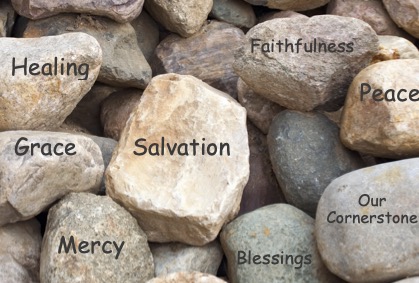The Greek philosopher Heraclitus is credited with first stating, “There is nothing permanent except change.” In our day, we hear the same thought as, “Constant change is here to stay.”
Centuries before Heraclitus, Solomon wrote in Ecclesiastes 3:1, “To everything there is a season, a time for every purpose under heaven. . .” We immediately see the critical difference: “… a time for every purpose under heaven.” In other words, changes in life are inevitable, but in the purposes of God, each changing season has meaning.
Several years ago, my wife and I had the privilege of hearing Richard Blackaby speak at a Christian business luncheon. Richard, a prolific author in his own right, is the son of Henry, who gave us the famed Experiencing God study book in 1994. Richard spoke on The Seasons of God, the title of his 2012 book (highly recommended). We were edified and encouraged as he spoke of the changes and adjustments that come to believers through the very natural progression of the “seasons” of our lives. Taking much from Ecclesiastes 3:1-8 and his own family’s experiences, he brilliantly and humorously shared a simple outline of life’s seasonal changes. Through his sharing, we found faith growing and anxiety diminishing.
Spring, he said, is the Time of Beginnings (i.e., Planting). Summer represents the Time of Work and Growth. Autumn speaks of Harvest, while the cold and seemingly barren Winter season corresponds to the Time of Endings—and yet it is also an unseen “resting time” in life that prepares both the natural world and our spiritual journey for the next Spring. Each season presents specific purposes of God, whether for home, church, ministry, or business. Resting in and flowing with the seasons “under heaven” will bring increased faith and spiritual productivity in God’s purposes.
Children seem to take change in stride much better than their parents and grandparents. The older we get, the less we like or welcome change (unless, of course, the firm we work for had a good year and our Christmas bonus doubles!). But in most circumstances, we resist—perhaps even cringe from—the inevitable changes that disrupt the status quo by demanding significant adjustment in our lives, our homes, and the patterns to which we have grown comfortable.
Our church experience seems to mirror the same process. Why is it that we tend to sit in the same seats in the same row where we sat last Sunday, and the Sunday before that, and before that? We don’t know why, but we develop habits. We have comfort zones, and we don’t welcome disruptions. We want our church to grow, but only if the personal cost is minimal. That may not be sinful, but God wants to release us from the “little faith” that limits His full display of power.
We have preferences, don’t we? We treasure certain friendships, and our unspoken plea may be, “Lord, why did ‘they’ (our close friends) have to move away? Yes, Lord, I’m glad they have gone for the new church planting, but things will never be the same without them!” We recently got news that a friendship of more than 45 years was cut short when a Christian brother went home to heaven.
And on and on our lives unfold, until one day we sense it isn’t just circumstances that are changing but that we ourselves are also changing and moving steadily along toward life’s sunset. With that, we wake up and realize we have much less time to do the things we have always wanted and planned to do.
However, we can still trust our Lord who does not change and will be with us through every inevitable passage of life, “…for He Himself has said, ‘I will never leave you nor forsake you’ “ (Heb. 13:5). He is “…the same yesterday, today, and forever” (verse 8). Yes, we face change, but He remains steadfastly faithful and unchanging.
As we consider, then, that vitally important list representing God’s will and purpose for our life, let us step forward in God’s grace and apply our faith now. Are we ready to embrace and flow with each forthcoming seasonal change? In faith—and shored up by His grace—we are able to say, “Yes, Lord, where and how You lead, I will follow.” When we say “Yes” He will lead us forward even into “late season” fruitfulness.






